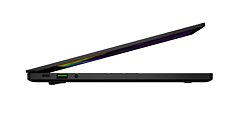
Intel to Announce Advanced Cooling Solutions for Project Athena Laptops
According to sources at DigiTimes, Intel will announce its advanced cooling solutions for project Athena thin and light laptops, at 2020's CES. Pushing project Athena to be the finest of all laptop options, Intel wants to give users the ability to have their laptops run even cooler than ever with a new thermal solution that will supposedly enable an additional 25-30% of cooling headroom. The new cooling module will combine two ingredients to make up for a powerful cooling solution - vapor chambers and graphite sheets.
Usually, the cooling modules inside laptops are placed between the keyboard and laptop's bottom shell, where they could utilize only a small space, so thermal management became hard. In contrast, Intel's design is combining the vapor chamber with graphite sheets to create a bigger surface for heat dissipation. The vapor chamber will replace all the current modules and connect to graphite sheets placed behind the laptop screen, where a lot of area is available. Connecting the vapor chamber to the graphite sheet is a laptop hinge, where a graphite cooling solution would pass through. This hints at a complete redesign of laptop hinges, so we can expect to see some creative solutions there as well. Additionally, this design will allow manufacturers to make fanless laptops that use lower-power CPU models, and we can expect to see even slimmer laptop designs than ever before.
Usually, the cooling modules inside laptops are placed between the keyboard and laptop's bottom shell, where they could utilize only a small space, so thermal management became hard. In contrast, Intel's design is combining the vapor chamber with graphite sheets to create a bigger surface for heat dissipation. The vapor chamber will replace all the current modules and connect to graphite sheets placed behind the laptop screen, where a lot of area is available. Connecting the vapor chamber to the graphite sheet is a laptop hinge, where a graphite cooling solution would pass through. This hints at a complete redesign of laptop hinges, so we can expect to see some creative solutions there as well. Additionally, this design will allow manufacturers to make fanless laptops that use lower-power CPU models, and we can expect to see even slimmer laptop designs than ever before.










































































